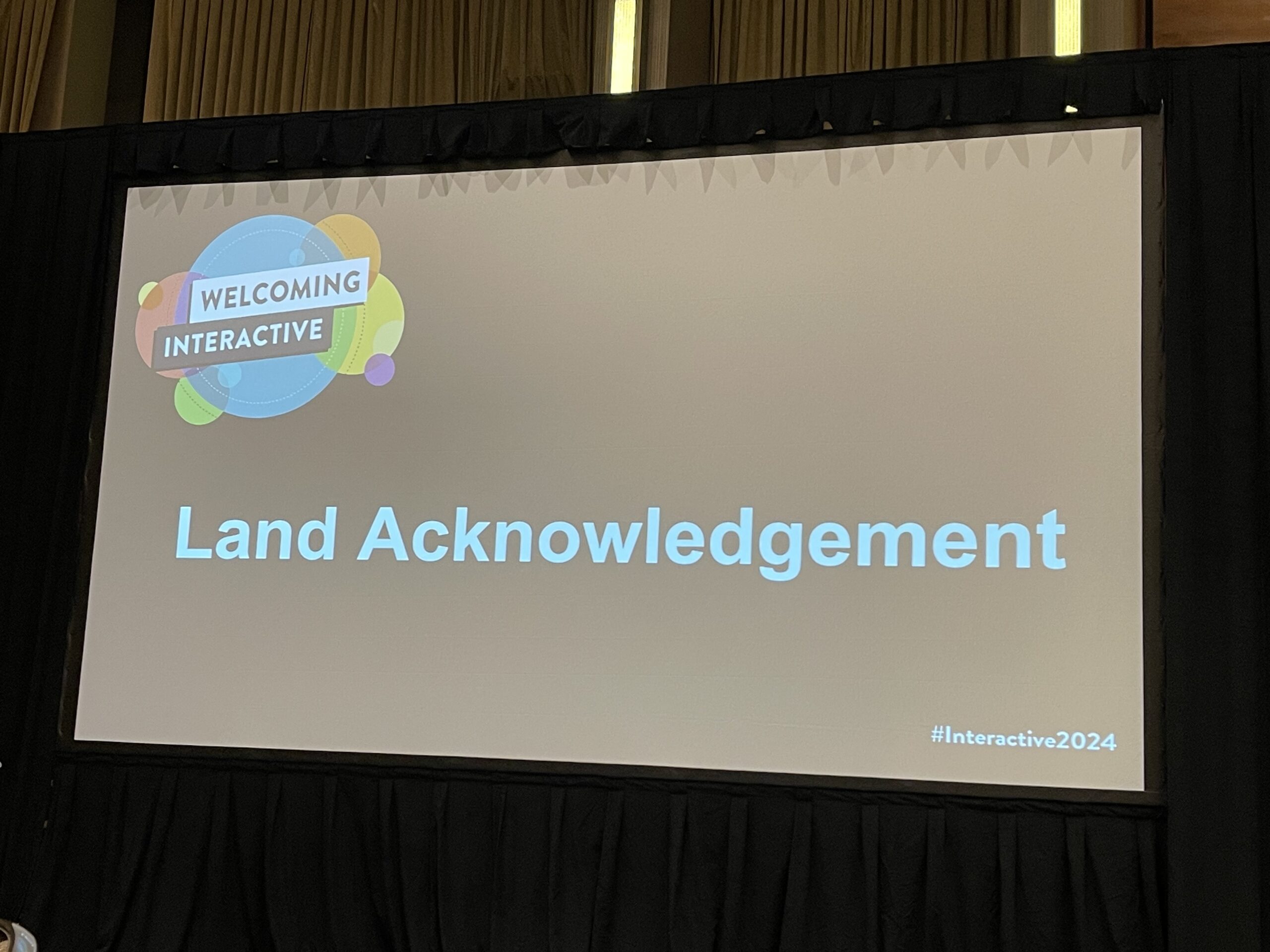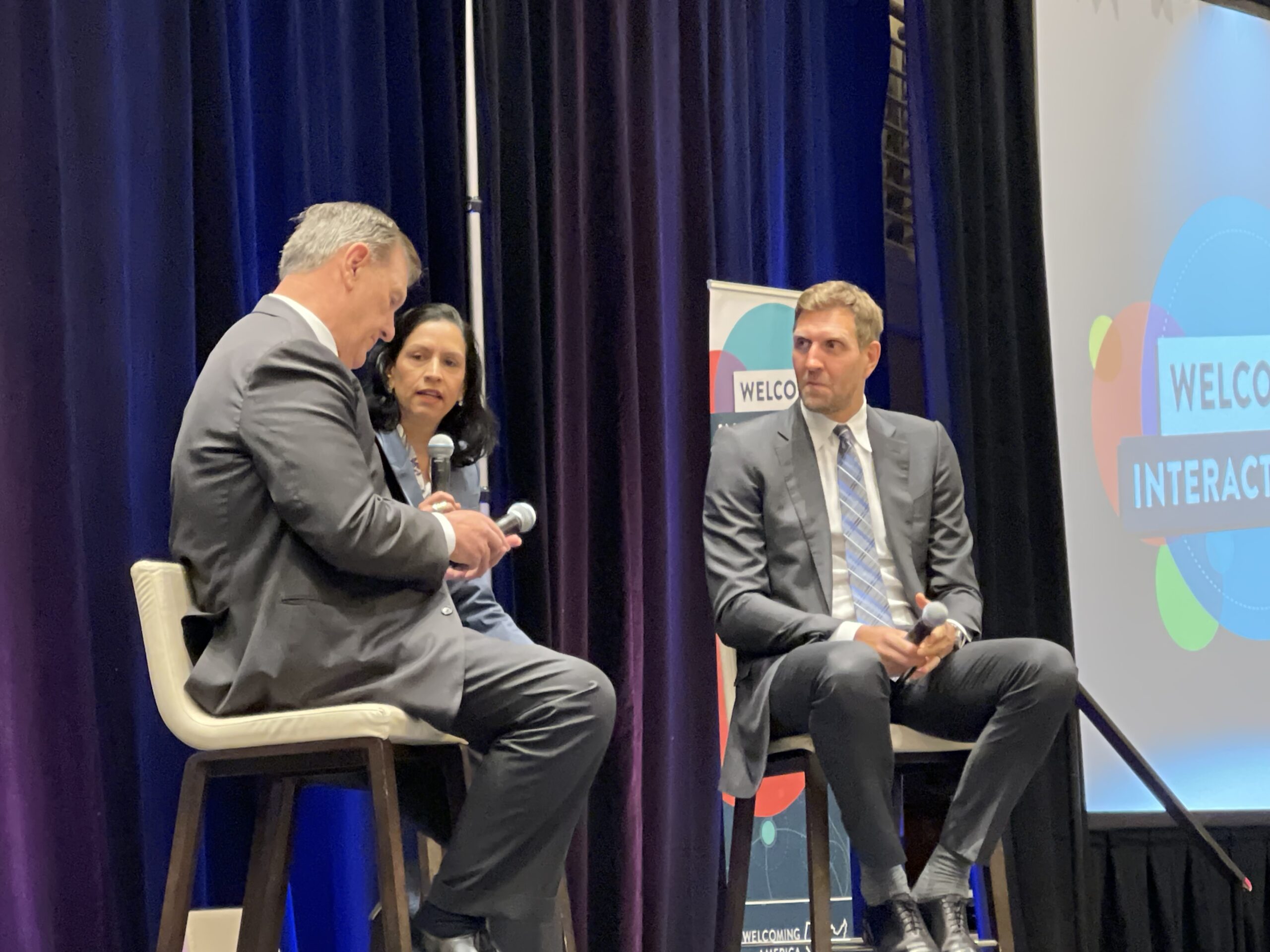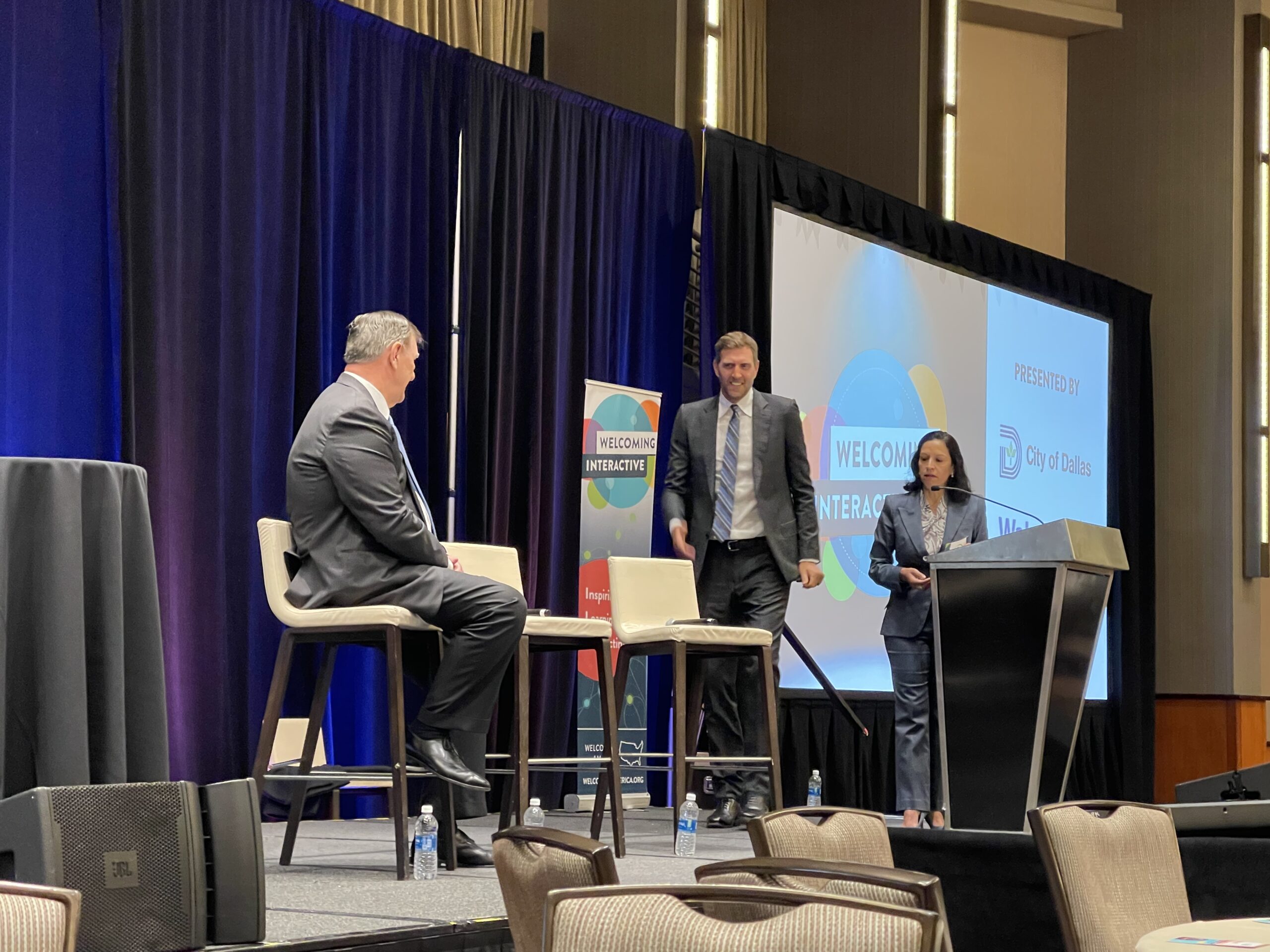The City of Dallas hosted a three-day conference where speakers shared stories about the positive effects of immigration — illegality notwithstanding — on communities within a variety of contexts.

The Welcoming Interactive Conference was held at the Hyatt Regency Dallas from April 10 to 12.
Press were only permitted to attend the event for a few hours on its second day, Thursday, during which speakers did not take questions from attendees.
According to Welcoming Interactive’s website, the event is an “annual conference that highlights successful practices and inspiring stories about immigrant inclusion, programs, policies, and partnerships on economic development, civic engagement, government leadership, and more. Attendees learn about local innovations from peer communities and come away with new ideas and energy to foster welcoming places for all.”
Thursday’s portion of the conference opened with a “land acknowledgment,” sometimes referred to as a “prayer,” recognizing that the event was taking place upon land that once belonged to Native Americans.
The first plenary session of the day began following a performance of tribal music. Rachel Perić, executive director of Welcoming America, the organization in charge of the event, was the first speaker to address the crowd formally.
Perić recalled how her grandmother was a Holocaust survivor and would tell Perić stories of her survival while making Perić food from her home country. Perić compared portions of her grandmother’s experience fleeing an oppressive regime to the current situation in Gaza and American politics today. She recounted a conversation she’d had with several unlawful migrant women who said they identified with her grandmother’s story because “she, too, was undocumented.”
Addressing immigration, Perić denounced “defining a person as legitimate based on a little piece of paper, rather than their humanity.” She cataloged a variety of instances throughout history where she believes documentation deprived people of their humanity. Among them, Perić listed various slave laws, the Chinese Exclusion Act, and the Nuremberg Codes before identifying Senate Bill 4 as the most recent example in this continuum. She said SB 4 “defined people by their legality ‘as other’ rather than ’us.’”
SB 4 is a 2023 law passed by the Texas Legislature that makes unlawful entry into the state a crime and allows state law enforcement officers to arrest those suspected of violating the law, as previously reported by The Dallas Express. However, SB 4 has been tied up by a legal challenge in federal court: a conjoined lawsuit filed against Texas by the U.S. Justice Department and the American Civil Liberties Union endeavoring to have SB 4 blocked for being “unconstitutional.”
Perić suggested that “the immigration debate will never be resolved if we make it about finding the right people –– it is about [Americans] being the right people.” Emphasizing that immigration and immigrants are “great,” she bemoaned the fact that the lawful immigration process restricts entry to “the select, safe few.”
Perić concluded by stating her belief that “[immigration] strengthens our democracy,” questioning the validity of the “so-called ‘migrant crisis,” and contending that “if there is a [migrant] crisis — it is a crisis of leadership.”
As covered extensively by The Dallas Express, a steady stream of millions of unlawful migrants has crossed the U.S.’s southern border in recent years — more than 7.5 million encounters have been recorded since President Joe Biden took office in 2021.
Meanwhile, the House Committee on Homeland Security reports that approximately 1.7 million individuals have crossed unlawfully without being apprehended by Border Patrol.
The vast number of unlawful migrants being housed in shelters nationwide has overwhelmed American cities, not just those on the border, but further north as well like Denver, Chicago, and New York City.

Jaime Resendez, a Dallas City Councilman representing District 5, addressed the audience next.
He was followed by former Dallas Mavericks player Dirk Nowitzki, 61st mayor of Dallas Mike Rawlings, and Assistant Dallas City Manager Liz Cedillo-Pereira, who held a panel discussion.
During the panel, Rawlings said it was important to treat other people, not as grocery store clerks, which one tries to avoid by going to the self-checkout machine, but as “divine.”
Nowitzki mainly focused on his positive experiences coming to Dallas from Germany.

Cedillo-Pereira reiterated the “divine” sentiment made by Rawlings. She also took a moment to celebrate the “tapestry [of immigrants]” in Dallas. A previous investigation by The Dallas Express revealed that Cedillo-Pereira supports Deferred Action for Childhood Arrivals (DACA). DACA is an Obama-era policy still in effect that allows unlawful migrants who came into the U.S. as children to stay indefinitely.
The three handheld microphones intended for use by the panel repeatedly failed, requiring each speaker to go to the podium’s microphone to ask questions and give answers, causing considerable delay.
Most of the morning speakers in the session were academic or business figures. None of the speakers publicly identified as current or former unlawful migrants, nor did they differentiate between lawful and unlawful migration when praising the presence of people from other cultures in the U.S. Among the immigrant speakers, only Nowitzski and Dr. Maria Mosomi of Texas Advance Behavioral Health spoke positively about the U.S. beyond the personal benefits they received from being on U.S. soil.
“I thank God for this country and this city,” Mosomi said, referring to the healthcare available to foreign- and natural-born residents in the U.S. compared to other countries. She referenced an immigrant healthcare rights primer published by the Texas Department of Health as one of the many examples of exceptionalism that prompted her praise of Texas.
Despite being shorter in duration, the second plenary session was more politically charged. Fatima Saidi, national campaign director for We Are All America, said, “Don’t be afraid to destroy; that is part of building a better America … because there are parts of America we have to destroy.”
Saidi, a former refugee from Afghanistan whose family fled to escape the Taliban when she was 2, asserted that “America’s immigration system isn’t broken; it’s racist.”
Mazin Sidahmed, reporter and co-founder of news site Documented NY, called Saidi’s statements “amazing.”
At one point, Saidi asked all the “immigrants, refugees, and naturalized citizens to stand up.”
The audience for this session appeared to be primarily white middle-aged women. Other women and some men wore Islamic and other religious and ethnic head coverings. Additionally, there was a sizeable presence of attendees wearing rainbow colors and various LGBTQ symbols.
Approximately 20% of the audience rose at Saidi’s invitation.
After several musical interludes, including a song from the Tacoma Refugee Choir in another language, the second session ended in recess until a speaker announced that several Biden administration officials would address the closed session later in the evening.
The Welcoming Interactive event’s indiscriminate celebration of migration comes just after a rebuke of unlawful migration at the Texas polls. Republican primary voters overwhelmingly endorsed a resolution on the primary ballot supporting statewide mandatory E-Verify through the approval of Proposition 3, which states, “The Texas Legislature should require the use of E-Verify by all employers in Texas to protect jobs for legal workers by preventing the hiring of illegal aliens,” as previously reported by DX.


